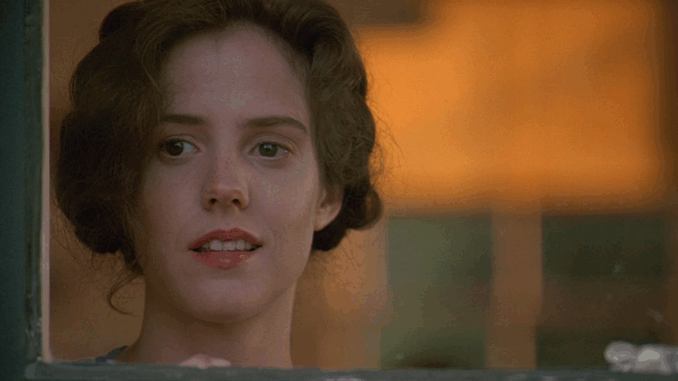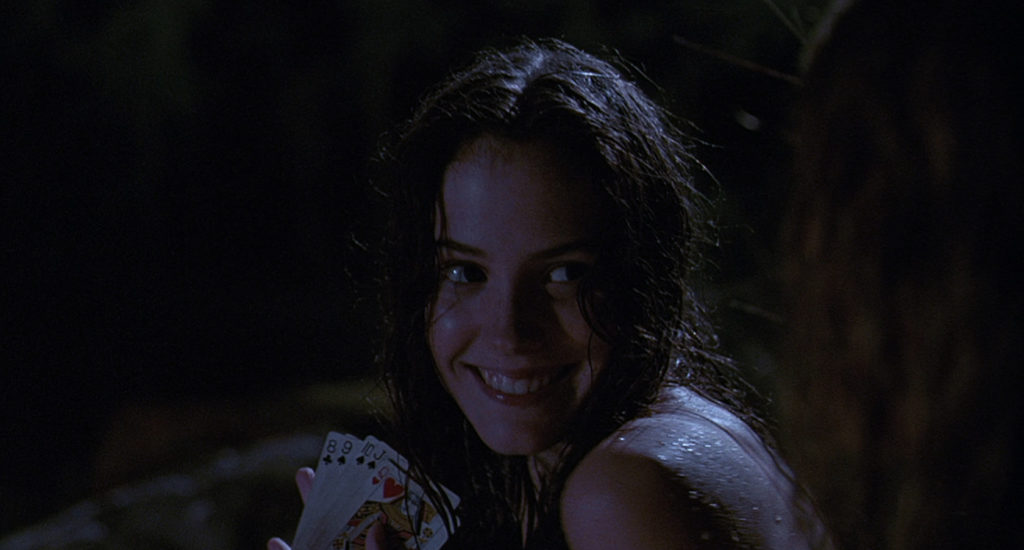
In the dual timelines of Fried Green Tomatoes, where past and present collide through storytelling, Ruth Jamison stands out as one of the film’s most delicate and yet most indomitable figures. She is not loud. She is not rebellious. But in a world of harsh judgments and rigid gender roles, Ruth’s gentle resilience becomes its own quiet revolution.
First Impressions: Grace in the Face of Silence
When we first meet Ruth in the flashbacks to Whistle Stop, she seems the archetype of a well-bred Southern lady — polite, devout, modest. Her voice is soft. Her manner careful. But beneath that gentility is a woman struggling with suffocating expectations.
-
She is married to a cruel and violent man, Frank Bennett.
-
She suffers quietly, believing perhaps that this is her burden to bear.
-
She tries to uphold virtue — not out of pride, but out of a deep sense of goodness.
Ruth is, in many ways, the inverse of Idgie. Where Idgie rails against the world, Ruth attempts to endure it.
But enduring doesn’t mean weak.
The Power of Endurance: Ruth as Survivor
What makes Ruth remarkable is not just her suffering — it’s how she chooses to survive.
When she becomes pregnant and her life with Frank becomes unbearable, it is Ruth herself who writes the letter that changes everything:
“Idgie, I need you.”
It’s one of the most quietly radical moments in the film. In a time when women were expected to stay silent and submissive, Ruth asks for rescue — not from a man, but from another woman.
She leaves abuse. She claims her right to safety. And she chooses love.
The Café as a Sanctuary
Together with Idgie, Ruth helps build the Whistle Stop Café — not just a restaurant, but a refuge.
-
She raises her son, Buddy Jr., in a space free from cruelty.
-
She offers food, kindness, and spiritual grounding to the townspeople.
-
She creates community — something rooted in her faith, but shaped by freedom, not dogma.
While Idgie is the fire of the café, Ruth is the hearth. Warm, grounding, steady. Without her, the space would have lacked heart.

Ruth and Idgie: A Love That Defies Labels
Much has been written about the relationship between Idgie and Ruth — and whether it’s romantic. The film leaves their intimacy unspoken, but its emotional depth is undeniable.
Ruth and Idgie’s connection transcends friendship. It is:
-
Fierce and protective.
-
Intimate and sacrificial.
-
Full of small gestures that speak volumes: the glances, the touches, the loyalty.
Ruth softens Idgie’s sharp edges. Idgie lifts Ruth from the shadows. Together, they create a space where each woman is most herself.
And in a world that would deny them that, this is its own act of love.
Facing Mortality: Ruth’s Graceful Exit
Ruth’s death from cancer is one of the film’s most painful moments. But even in death, she teaches those around her something essential:
-
That grief is the price of love.
-
That kindness can endure even in suffering.
-
That a life lived with tenderness is not wasted — it is sacred.
Her last moments, cradled by Idgie, are full of sorrow but not fear. She dies knowing she was cherished. And that she chose her life, even if it was cut short.
Ruth’s Legacy: Gentle Revolution
In a film often remembered for bold personalities like Idgie and Evelyn, it is Ruth who embodies the quietest — but deepest — form of strength:
-
The strength to forgive without surrendering.
-
The strength to endure without breaking.
-
The strength to love fully, even when time is fleeting.
Ruth represents every woman who has fought her battles in silence. Who has borne pain with grace. Who has changed lives not with fury, but with unwavering love.
She reminds us that softness is not weakness.
It is, sometimes, the greatest power of all.
